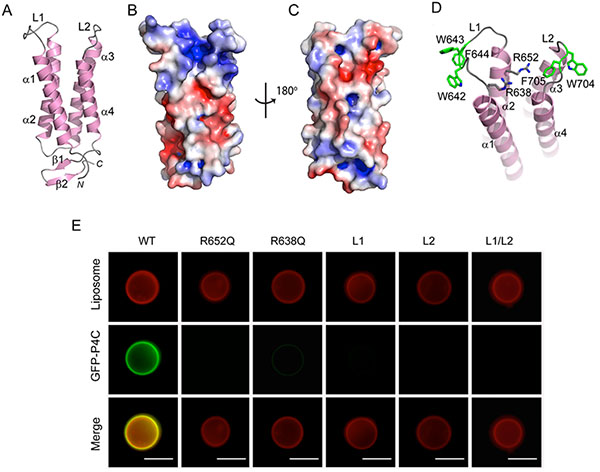Research reveals the mechanism of precise attack in infection
06-15-2015

Like modern military operations, precise attack is important in infections. A new study by Dr. Zhao-Qing Luo's group and their collaborators at Cornell University reveals the mechanism of precise attack by a virulence factor called SidC from the bacterial pathogen Legionella pneumophila, which deploys a large cohort of arsenals to bring down the immune system. By structural and biochemical analyses, the researchers identified the amino acid components of SidC directly involved in binding the lipid phosphatidylinositol 4-phosphate [PI(4)P], which is only present in certain parts of the cells. Changes in these amino acids did not affect the enzymatic activity of SidC but have altered its localization in infected cells. Importantly, the alternation in cellular localization abolished the function of SidC in bacterial infection, highlighting the importance of the precise attack site. The work was published June 12, 2012 in the Journal PLoS Pathogens. Yao Liu a graduate, and Jiayi Sun, an undergraduate participated in the research.
Article and photos provided by Professor Zhao-Qing Luo.